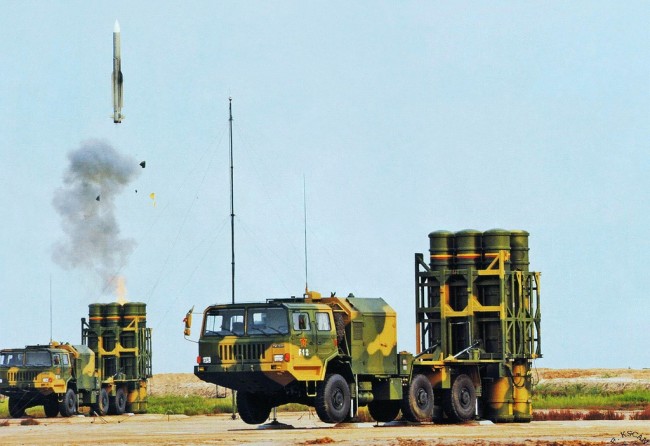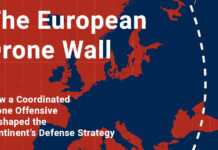
Turkey’s Undersecretariat for the Defense Industry (SSM) was expected to make the final decision concerning the procurement of a multi-billion dollar long-range air and missile defense system tender, with European and Chinese firms in the running. Instead, Ankara opted to delay its decision again, extending the deadline for bids until August 30, Hürriyet Daily News reported. This is the third time Ankara has extended the deadline for revised offers.
Last September, the SSM executive committee chose China’s FD-2000 (HQ-9) long-range air and missile defense systems over Western competitors, including the Italian-French Eurosam’s SAMP/T Aster 30 systems. The Chinese manufacturer of the HQ-9 missile system, the state-run China Precision Machinery Import-Export Corporation (CPMIEC), offered a $3.4 billion high technology transfer. Turkish government officials announced they preferred the Chinese offer due to its competitiveness and potential for co-production in Turkey. the Turkish Daily Sabah reports.
Facing unprecedented European and U.S. pressure to revert the selection Ankara has asked the competitors to ‘reconsider’ their bids. Since the announcement, the bidding deadline has been extended three times, and other bidding companies, Eurosam and Raytheon/Lockheed Martin, were given time to reconsider their bids until the end of June. As reported above, this target has now moved two month to the end of August.
Despite the international pressure, government officials announced that they preferred the Chinese offer due to its competitiveness and potential for co-production in Turkey. Sources in the defense industry stated that SSM Undersecretary Ismail Demir visited China last week and held talks with officials from the Defense Ministry and the Chinese manufacturer of the FD-2000 missile system, the state-run CPMIEC. According to sources, Turkish officials demanded further cooperation and technology transfer and underlined that current conditions concerning technology transfer are not sufficient for Turkey.
One of the main concerns for the Turkish planners are the integration of the new system with NATO’s evolving missile defense system. NATO insists the Chinese technology will not be compatible with the evolving ballistic-missile shield being built in Europe. There are also proliferation concerns, as the Chinese company has been on the U.S. State Department’s sanctions list since February 2013.
Turkish defense companies are also objecting to the selection of the Chinese option, fearing that their partnerships in certain fields would not be able to continue if Turkey buys missiles from China.
If Turkey decides not to continue with the Chinese company, Italian-French team Eurosam SAMP/T is in second place, and most likely Turkey will continue with the European firms.
Europe has focused on high level discussions to promote its offering. Last week, Prime Minister Recep Tayyip Erdoğan visited Paris, with Defense Minister İsmet Yılmaz joining the delegation. French Leader Hollande and Prime Minister Erdoğan are believed to have discussed details about a potential missile deal and Eurosam’s offer during the bilateral talks. Antoine Bouiver, CEO of MBDA, a partner company of Eurosam, visited Turkey in March. During his visit, he said that Eurosam was ready to offer Turkey a coproduction in radar and other communication tools. His visit was followed by a delegation from Eurosam visiting Ankara in April for meetings with defense officials. According to sources, Eurosam updated its offer, lowered its price estimate to under $4 billion and increased the share of local contributions to the project.
The U.S. applied pressure on Ankara to block the Chinese offer but did not change its proposal to become more attractive. An industry source familiar with the program remarked that the U.S. company did not revise its offer and declined to offer the options of technology transfer or coproduction to Turkey.









